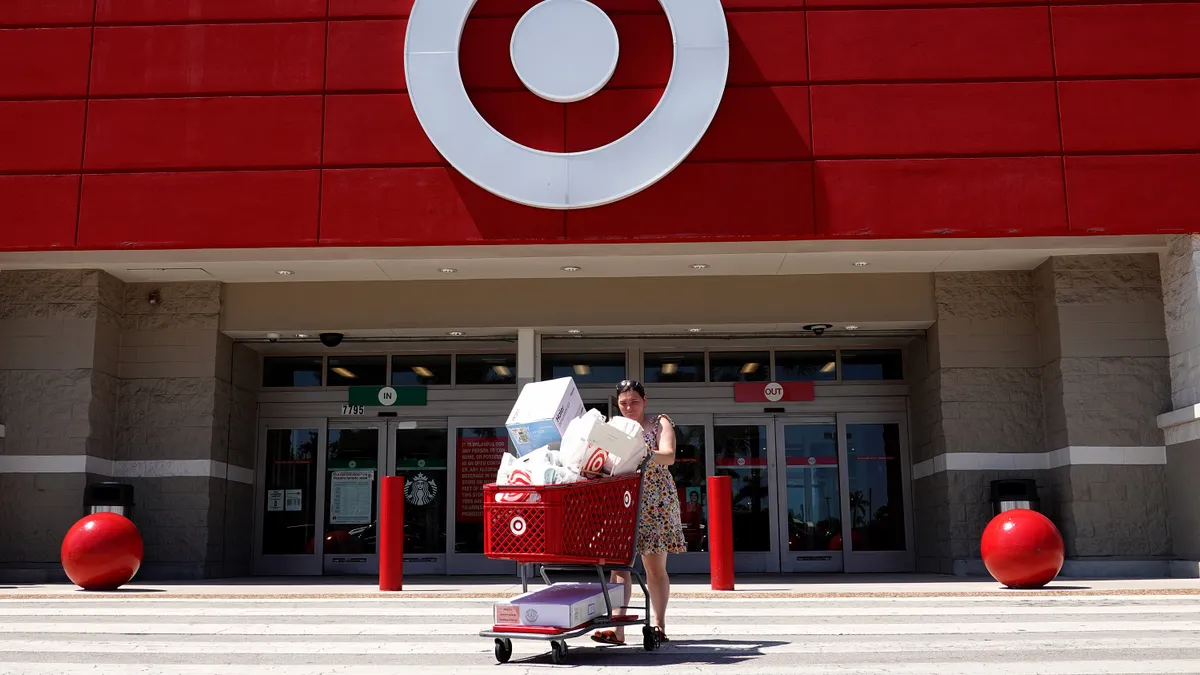Dive Brief:
- Despite concerns about inflation and a possible recession, Mastercard’s SpendingPulse report showed that U.S. retail spending, excluding automotive and gas sales, rose by 9% in July compared to July 2021. Meanwhile, online retail sales increased 11.7% from last year.
- Among the categories that saw sales growth year-over-year were groceries (16.8%), apparel (16.6%) and jewelry (18.6%), according to an Aug. 4 press release for the report.
- Travel purchases also climbed, with a lodging expense jump of 29.6% and a boost for airline sales of 13.3% over last year. Spending on fuel and convenience store purchases rose nearly a third (32.3%) year-over-year, per the report.
Dive Insight:
Mastercard’s calculations did not adjust for inflation, so some of the rise in spending found in the report can be attributed to surging prices for consumer goods and services. And as for e-commerce retail sales, the report noted that consumers were shopping more online during sales events in search of discounts.
Inflation in the U.S. has risen this year to 40-year highs, with prices climbing for a range of consumer items and services.
“The latest retail trends place an emphasis on consumer choice and passion driven spending – they’re hunting for deals, shopping across channels and ultimately still spending on experiences and goods that make them feel good,” Steve Sadove, a senior advisor to Mastercard, said in the release. “As retailers grapple with excess inventory and supply chain constraints, it’s likely that the promotional activity seen in July will continue to be an important strategy for retailers.”
Like regulators and economists, card issuers and other payment firms are also keeping a close eye on macroeconomic trends. Mastercard CEO Michael Miebach recently said that the low unemployment rate, wage growth and consumer savings levels are encouraging signs for the economy, but low-income consumers are spending less than their wealthier counterparts.
Payments processor peer Fidelity National Information Services, better known as FIS, adjusted its earnings forecast for 2022 after accounting for shifts in macroeconomic trends and two divestitures.
A potential recession isn’t the only thing concerning card issuers. Senator Dick Durbin (D-IL) recently introduced the Credit Card Competition Act of 2022, which aims to foster more competition among card issuers. The legislation would require access to card networks other than Visa and Mastercard for routing credit card transactions.
According to a press release from Durbin, such transactions generated fees of about $77 billion last year for nearly $3.5 trillion worth of transactions.










